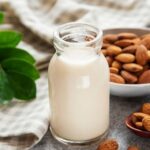Salt-Rich Foods
Consuming foods high in salt, such as pickles, instant noodles, and processed meats, can lead to a significant loss of calcium. For every 100 grams of sodium ingested, 26 mg of calcium is excreted. As a result, the more sodium we consume, the more calcium our bodies eliminate.
Foods Containing High Levels of Fat
In addition to contributing to weight gain, fatty foods can also hinder the body’s ability to absorb calcium. Over time, this can lead to osteoporosis. While fat is an essential component of a healthy diet, it should be consumed in moderation.

The excessive consumption of salty and fatty foods can lead to increased calcium excretion from the body.
Carbonated Soft Drinks
Carbonated soft drinks often contain high levels of phosphoric acid, which combines with calcium to form insoluble precipitates or solid calcium salts. This process inhibits the body’s ability to absorb calcium, leading to a decrease in bone calcium levels and an increased risk of osteoporosis.
Coffee
While coffee is a beloved beverage for many, providing a sense of alertness and clarity due to its caffeine content, it’s important to moderate your intake. Caffeine can negatively impact calcium absorption in the intestines and increase the excretion of calcium from the body.
Red Meat
Red meat is a good source of protein, fat, and various vitamins and minerals. However, it should be consumed in moderation. Excessive red meat consumption contributes to chronic inflammation, which directly leads to bone loss. Research indicates that those who consume large amounts of meat and animal protein tend to have lower bone density than those who favor a plant-based diet.
Red meats, such as beef, are rich in iron, protein, and fat, which are all necessary for the body. Nevertheless, excessive consumption can hinder calcium absorption and increase calcium excretion through urine.
Alcoholic Beverages
Alcoholic drinks can accelerate the excretion of calcium from the body, leading to reduced bone density, an increased risk of fractures, and a slower recovery process for bone injuries. If you choose to drink alcohol, it is recommended to limit your intake to 1-2 drinks per day.





































